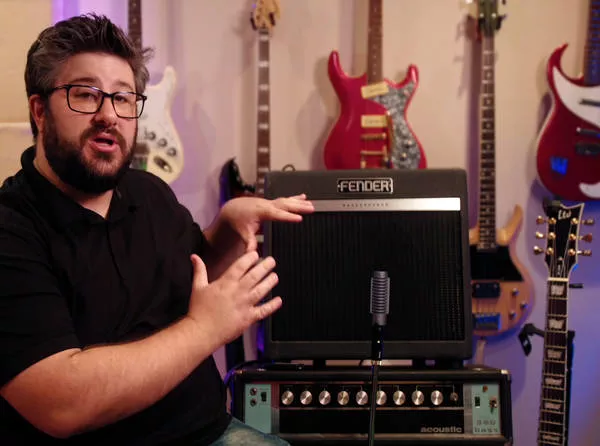Groove3 Recording Electric Guitars Explained TUTORIAL
Who doesn’t long for a great guitar tone? A great tone can sometimes make a riff sound larger than life or send a solo to an otherworldly dimension, taking the listener along for the ride. However, as many home recordists have discovered, it’s not always an easy matter to translate the sound you hear in your head to the recording. In this two-hour video course, Patrick Coffin teaches you several techniques, tools, and methods for consistently achieving stellar guitar tone on your recordings. From DI signals and reamping to mic choices, amps, and more, you’ll learn all you need to know to achieve professional-sounding guitar tones that you can be proud of. These videos are for those new to recording electric guitars.
Patrick begins by welcoming you and giving an overview of what he’ll be covering in the course, getting everyone on the same page with regards to terminology, equipment, and the various processes that’ll be discussed. Then he covers one of the most crucial, yet often-overlooked steps in getting any great sound down on tape: starting at the source. Learn how to dial in a great tone on your amp, which will make the job of recording a great tone a much simpler task! Then you’ll discover how to set up a clean DI signal, which can be recorded simultaneously along with an amped rig and provides you with nearly limitless flexibility when it comes to tone-chasing.
Next, explore the fine art of recording an amp, beginning with finding the “sweet spot” with the microphone. Learn how even small movements of a centimeter along the speaker can yield noticeable results that can make or break your recording. See and hear how important mic choice is and which mics typically excel in various tones and rig setups. Discover the differences in close mics and room mics, the reason for each, and some pro tips that’ll help you get on the right track quickly every time.
Throughout the rest of the course, Patrick will cover other useful, important topics, such as reamping (sending a clean DI signal back through a miked amp), post-production techniques to make your guitar tracks shine even more, alternate recording methods (VST and hardware amp simulators), and more. By the end, you’ll have numerous options at your fingertips for achieving great tones, regardless of the genre!
If great guitar tones have evaded you in the past, or if you’ve never tried your hand at recording electric guitar, this video course is for you. See the individual Recording Electric Guitar video descriptions for more information on how these techniques will help you generate impressive tones time and again without spending hours chasing your tail. It’s time you started getting excited about your guitar tracks… watch “Recording Electric Guitars Explained®” today!
- Share on Facebook




